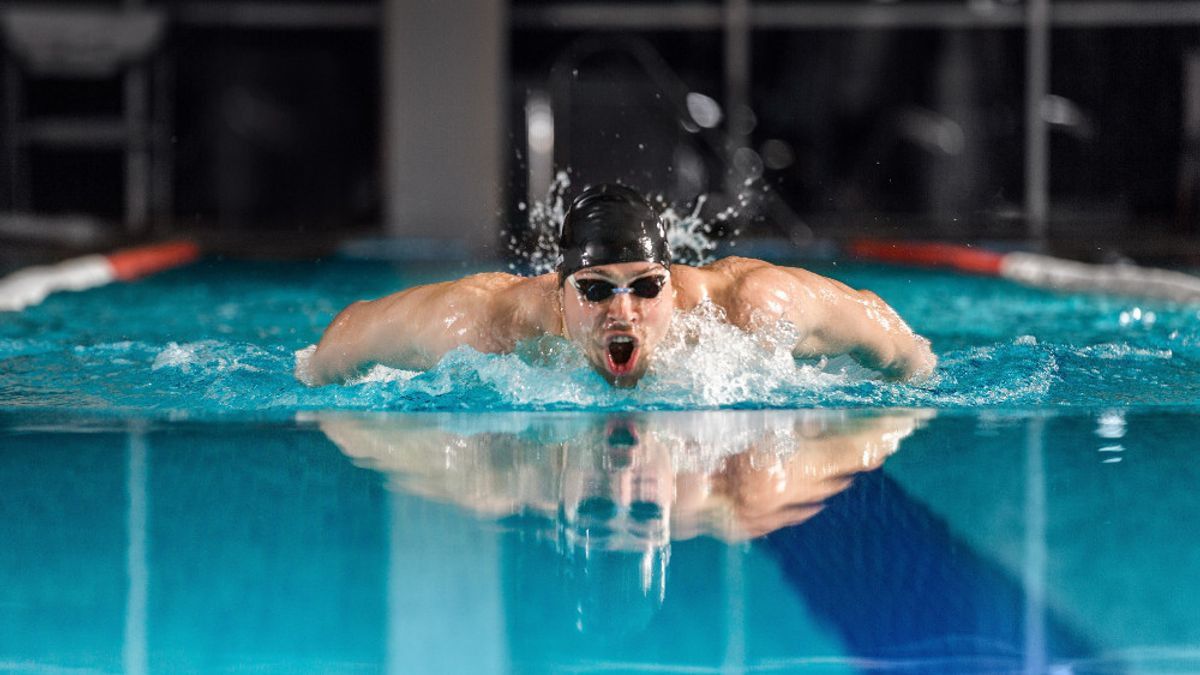YOGYAKARTA Some people still do not know the law of swimming during fasting. Some people are hesitant because when swimming there is the potential for water to enter the body through the mouth or nose. On the other hand, these activities are carried out for certain purposes such as athletes who practice championships, swimming as therapy, to cool and nourish the body, and so on.
As is known, Muslims who perform fasting are required to protect themselves from certain objects that enter the body such as water from dawn to sunset. Meanwhile, the potential for water to enter the body while swimming may occur but it may not happen. Then what is the law of swimming during fasting?
There are differences of opinion among scholars regarding swimming law during fasting which has the potential to cause water to enter the body through the mouth, nose, ears, and rectum.
Quoted from the website of the Islamic University of An Nur Lampung, some of the Syafii mazhab scholars argue that swimming during the day during fasting is allowed as long as water does not enter the body. This view is based on the rules that everything that is not included in matters that invalidate the fasting of the law isbah or permissible.
However, there are also some scholars who say that swimming during the day during the fasting of the law is makhruh or hated to do but not to sin. This opinion equates the law of swimming with the law of mouthwashing or inhaling water from the nose.
Quoted from NU Online, activities that invite the risk of fluid entry into the body through holes in the body or other activities that have the potential to cancel their legal fasting are chaotic.
This risk does not only apply to swimming but other activities such as gargling or breathing water from the nostrils, and so on. This is as stated in Syekh Ibnu Hajar al-Haitami's book, which reads as follows.
Let's take care of it, let's take care of it, let's take care of it. Let's take care of it. Let's take care of it, let's take care of it, let's take care of it.
Meaning:
"As for people fasting, it is meant for him to be exaggerated in gargling and inhaling water into the nose because it has the potential to break the fast."
MaCRuh law is absolutely valid even though the water that enters the body is due to an accident. However, the law of swimming during fasting can be forbidden if the risk of water entering the body is large and it can be ascertained that it will cause the breaking of the fast. This was also explained by Sheikh Ibnu Hajar al-Haitami in Tuhfatul Muhtaj.
Likewise canceling (as excessive gargling and inhaling water into the nose), accidentally entering water while bathing for the purpose of refreshing or cleaning the body, as well as entering water into the cavity of a person diving, can be from the mouth or nose, because diving is chaotic as excessive in gargling and breathing water into the nose. Thus, if there is no habit of entering water into the cavity, if not, then it is a sin and breaking fasting without any sincerity.
From this description, it can be concluded that swimming during fasting can be done at night. Meanwhile, during the day it is better to avoid it. People who are pressed have to swim during the day because certain interests are advised to be careful and minimize water entering the body.
In addition to the law of swimming during fasting, visit VOI.ID to get other interesting information.
The English, Chinese, Japanese, Arabic, and French versions are automatically generated by the AI. So there may still be inaccuracies in translating, please always see Indonesian as our main language. (system supported by DigitalSiber.id)













